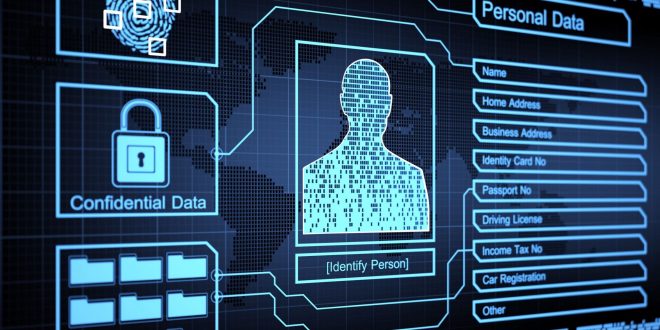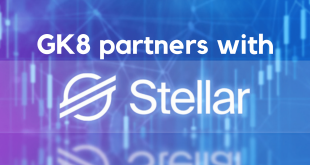Data privacy Concern: Data privacy is an issue that is causing concern, but blockchain offers an answer. Personalization is today’s consumers’ top priority, but concerns over consumer privacy have been growing remarkably fast. One study from Entrust, a digital security and credential issuance company, showed that only 21% of respondents have confidence that established brands will protect their confidential information. These companies are starting to invest heavily in security solutions because of the growing pressure from privacy rights advocates.
Global regulation is undergoing rapid change.
Internet usage increased last year due to COVID-19 lockdowns that caused people to spend more time at home. The amount of data consumed is rising, and consumers are becoming more aware of what happens to their data. Starting page, a privacy-focused search engine provider, noted that 62% of Americans are becoming increasingly aware of how they are marketed based on their web activity. A rapidly evolving body of legislation is emerging worldwide to address the growing concern over how businesses collect data.
The EU approved regulations concerning data protection in 2016. Within two years, California passed its first state-level privacy law, the California Consumer Privacy Act, making it the most sweeping legislation in the country. Other than Virginia, the only other state in the U.S. to pass a comprehensive privacy law is North Carolina. The shift in consumer opinions and policies is evident as more states add laws protecting consumer privacy. These toothless bills may have the opposite effect, giving a false impression that personal information is being protected when it isn’t. Privacy is an incredibly complex issue, and toothless legislation could lead consumers to believe that their personal information is protected when it isn’t.
Technologies for protecting companies’ privacy and data security will become more prevalent as time goes on.
A barely regulated internet exposes more personal data to millions of people as they live online, go to school remotely, and attend virtual happy hours. In addition to integrating more data collection into their daily lives, people were also told how location tracking could benefit the public health system. As a result of COVID-19, we can now see the full extent of our data sharing shortcomings. As we move forward, we should all work together to promote privacy and data protection best practices.
Is it possible to find a solution?
Consumer expectations are likely to drive privacy scrutiny in the coming years, providing an opportunity to participate in the lead. Still, due to new competitors growing in the market, that opportunity is not likely to last very long. Last year, Crunchbase reported that investors invested $7.8 billion in cybersecurity firms, an increase of 22% compared to 2019-2020, and within the first six months of this year, the mark has exceeded $9 billion. To better understand how startups are preparing for a post-pandemic world, let’s look at the startups leading the way in data ownership.
This selection of startups helps companies and individuals regain control over their data, from scrubbing personal information to protecting their businesses. As part of its mission to preserve privacy, OpenMined strives to lower the entry barrier to private AI technologies. The development of advanced cryptographic and differential privacy techniques applied to popular libraries such as PyTorch aims to make privacy education and tools more accessible to the general public.
Data scientists can be trained or questioned using private data sets provided to companies by the companies they can’t see. The owners maintain unfettered control over their data, which is never moved, copied, or distributed. The Anjuna data, application, and workload protection eliminate data insecurity virtually. Using it, operations are simplified, and data security is guaranteed by ensuring that applications are independent of infrastructure.
Applications and data are transported into hardware-encrypted confines, protecting all data and applications from outside threats, such as malicious software, insiders, and hackers. In addition to running sensitive applications in any environment, including public, hybrid, multi-cloud, or private, Fortanix also handles highly available or specialized applications. Organizations can accelerate their digital transformations, combine and analyze private data, and deliver secure, privacy-protecting applications thanks to Fortanix’s platform.
Due to growing demands for collaboration on sensitive information, enterprises across multiple regulated industries seek Duality Technologies. The company claims to analyze encrypted data using the platform, gaining insights from sensitive information without exposing it. This tech can protect valuable analytics models from external collaborators while they are being computed.
By leveraging advanced cryptographic methods, Dual SecurePlus claims its platform can enable enterprises to collaborate and share data in real-time while staying in compliance with privacy regulations and securing their proprietary information. The technology provided by Leap Year addresses these problems in a scalable, comprehensive, futuristic way. The company can streamline data silos, create data partnerships, and accelerate machine learning adoption by breaking down data silos and protecting their privacy.
Web 3.0: a necessity: Data privacy Concern
Taking a look back, the societal changes that we’ve experienced in the past year reveal considerable flaws in how the internet works today, how data privacy laws are written, and the mysterious ways that Big Tech utilizes our data. Several companies have benefited from the pandemic, including Google, Facebook, Zoom, and Amazon. Consumers’ privacy and choices are threatened by Big Tech’s monetization of user data. These platforms on Web 2.0 are ideal breeding grounds for exploitation, hacks, and breaches, even though we do use them every day.
Although there are many caveats, data privacy features in blockchains can be harnessed to enable consumer protection, such as self-sovereign identity. If users are not aware of the technology’s risks, blockchain technology poses massive security threats. In theory, blockchain may create a complex, utterly private network, but it may do so if designed and implemented correctly. Consumer privacy and security are two current problems with blockchain that need to be addressed before becoming a standard. There are several issues to consider, including:
Blockchain Data Privacy and Public Ledgers
Bitcoin (BTC) and all coins that utilize blockchain technology have plagued problems because the public ledger was a key component of Bitcoin’s success. As great as it was for verification that anyone could see every transaction on the blockchain, it became something that allowed people to be tracked and accounted for. Through the use of digital assets, police and criminals can find individuals using the blockchain. Data about consumers can be accessed in this way.
Blockchains with centralization: Data privacy Concern
Outside individuals aren’t the only ones who can access and use consumer data. Entire centralized blockchains would grant their owners/creators complete control over their users’ data. A decentralized blockchain such as Cardano (ADA) is controlled by the community, not a single individual or group. A centralized blockchain at a national level would be a dystopian nightmare for anyone who lived in it. This law will probably be implemented first by a country like China.
The Chinese Communist Party has already created its national digital currency and has implemented its own highly monitored and Chinese-only internet, so it seems unlikely. If its citizens were forced to use the blockchain, China would lose the sovereign identity other blockchains can provide. Nevertheless, the blockchain and its technology have transformed what privacy means in the financial world. In addition to its use as a P2P (peer-to-peer) cash-transferring system, Bitcoin can also be used on an online marketplace.
Markets like The Silk Road, which sell illicit goods over the dark web, quickly adopted Bitcoin because of its decentralization and privacy. Monero (XMR) goes even further in taking the technology to the next level with stealth addresses. Rather than using real wallet addresses to represent interactions between users, encrypted one-time addresses are created instead, ensuring complete consumer privacy. Users can be protected both against other users and from outside onlookers through this level of security.
In general, digital currency wallet users are unaware of the risks to their data privacy. Personal passwords are sometimes renamed in wallets, which is a concern. Users of the public blockchain will be able to view the password. Finally, most of the blockchain’s privacy and security features are related to the knowledge and control of personal data. Alternatives to the monopolies of big technology companies are being developed to protect personal data. By writing on immutable data, blockchain technology makes network transactions 100% secure, while the Tor project serves as a VPN that gives anyone total privacy.
A user enters the website after passing through several virtual networks. This redirection and indexing make it faster than most web browsers, but it is still slower than many others because of this. By combining Tor with blockchain technology, users would abandon browsers that sell their data to advertisers and censor their search results.
Additionally, Tor could build a safe and knowledgeable shopping experience on the web by connecting to blockchain-powered ecosystems such as digital supply chains. A space that combines privacy and security would be ideal for consumers to interact in a safe environment. Without any centralization, consumers have complete control over their privacy and the safety of their transactions.
Financial transactions
Whenever you send money electronically, you must rely on third-party services such as PayPal or Google Pay. Transactions can be conducted through blockchain without relying on third parties. Payments are made based on users’ public keys without requiring personal information to be disclosed to third parties. Additionally, financial data will be safer with blockchain.
Healthcare data
Patients can have better control over their healthcare information with blockchain technology. Blockchain technology allows healthcare data to be stored. In addition, the ledger enables the patient to keep their information secure and accessible only to the appropriate authorities. In addition, the healthcare provider can only release certain portions of the information for specific purposes.
The major challenge
Identifying how blockchain could solve the increasing privacy concerns is one of the goals we have set for this study. Although blockchain can potentially address privacy concerns, there are significant concerns about its use. Blockchain is inherently incompatible with the privacy of data. Any member of the network will see the data stored on a ‘distributed ledger. The immutability of the blockchain presents another problem.
Data will not be able to be modified once it has been recorded on the ledger. As a result, removing one’s data from the register will be impossible, even if one desires to do so. The Enigma Project at MIT is addressing this challenge. The Enigma group has created the Secret Network, a method of processing data without anyone seeing it. Using Secret Network, decentralized applications can access encrypted data without disclosing it. With the help of the blockchain, Oasis Labs is addressing data privacy issues. Organizations will be able to make sure their data is safe by using the system they are developing.
Final Words
There is already widespread use of blockchain technology in many sectors. To eliminate centralized servers and enhance the security of their data, several governments have adopted blockchain technology. In these times of information technology, it has become more and more critical that we protect our data. In the nascent stages of technology, blockchain has yet to prove its value in dealing with these matters.
FAQs
Public and private keys are key components of blockchain privacy. Asymmetric cryptography is used to secure transactions in blockchain systems. The users of these systems possess both a public and a private key. The keys are cryptographically related and consist of random numbers.
Blockchain technology and distributed ledger technology (DLT) could theoretically make it harder for pirates to hide their illicit piracy activities online. Blockchain-based technologies already prevent piracy via digital watermarks and content surveillance.
A set of automated processes controls the exchange. Contracts can be integrated with the blockchain to ensure transparency. As far as their security is concerned, Smart Contracts remain vulnerable. In the agreement, the errors result in incorrect actions.
 Next Tech Magazine Get The Latest Technology Updates
Next Tech Magazine Get The Latest Technology Updates







